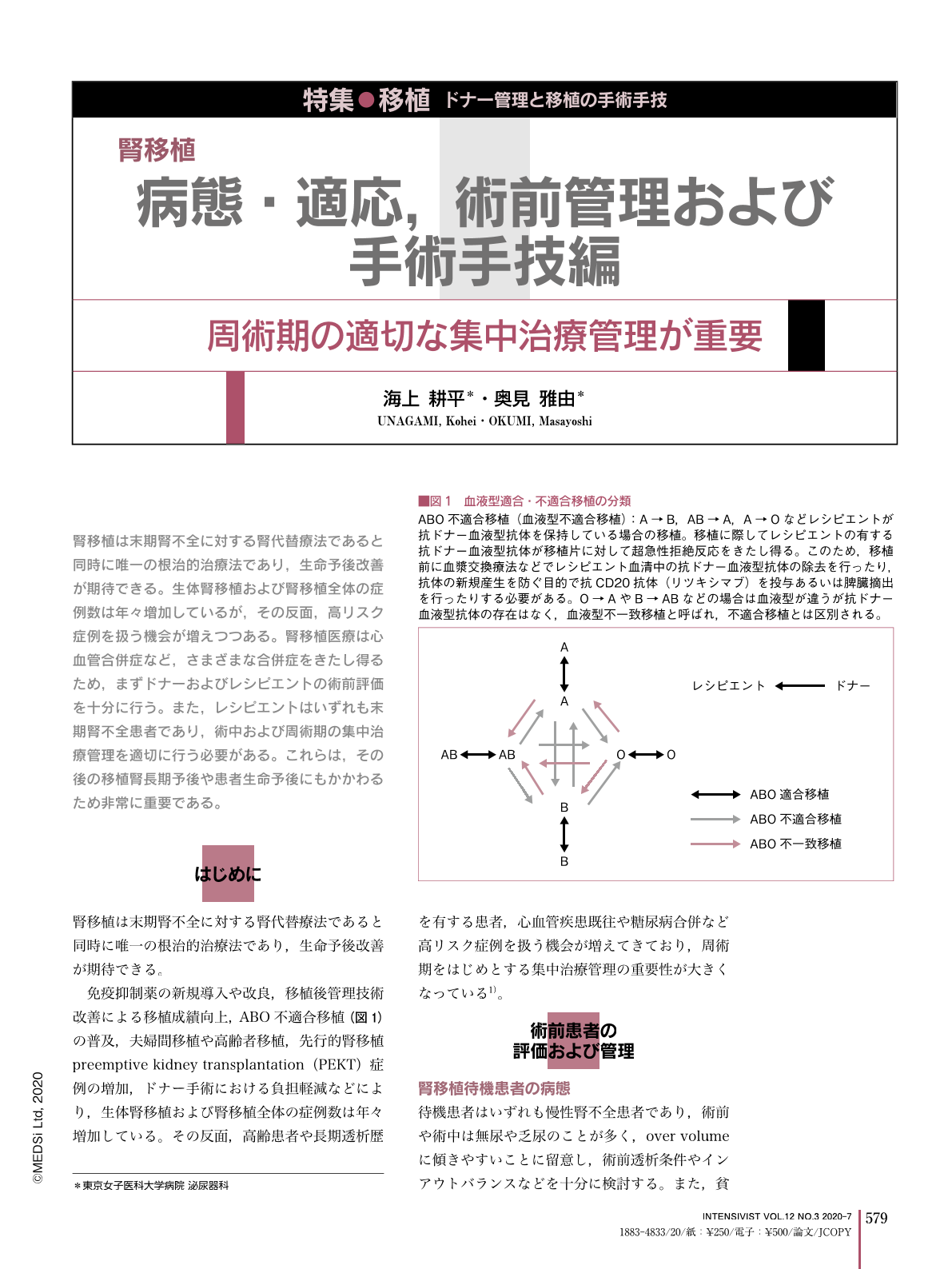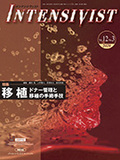Japanese
English
- 有料閲覧
- Abstract 文献概要
- 1ページ目 Look Inside
- 参考文献 Reference
- サイト内被引用 Cited by
腎移植は末期腎不全に対する腎代替療法であると同時に唯一の根治的治療法であり,生命予後改善が期待できる。生体腎移植および腎移植全体の症例数は年々増加しているが,その反面,高リスク症例を扱う機会が増えつつある。腎移植医療は心血管合併症など,さまざまな合併症をきたし得るため,まずドナーおよびレシピエントの術前評価を十分に行う。また,レシピエントはいずれも末期腎不全患者であり,術中および周術期の集中治療管理を適切に行う必要がある。これらは,その後の移植腎長期予後や患者生命予後にもかかわるため非常に重要である。
Renal transplantation is one type of renal replacement therapy and the only treatment expected to result in long-term cure. In Japan, the number of cases of renal transplantation increased in tandem with advancements in transplantation medicine such as new immunosuppressive drugs, performance of ABO- incompatible transplantation, preemptive transplantation, transplantation between spouses and/or senior patients, and others. However, high-risk transplantation is also increasing which mandates a thorough evaluation of both the donor and recipient before transplantation. Subsequently, the recipient has to undergo appropriate concentration treatment management from the preoperative through the perioperative period. These treatment strategies are associated with allograft survival, patient survival, and other outcomes after renal transplantation.

Copyright © 2020, MEDICAL SCIENCES INTERNATIONAL, LTD. All rights reserved.


